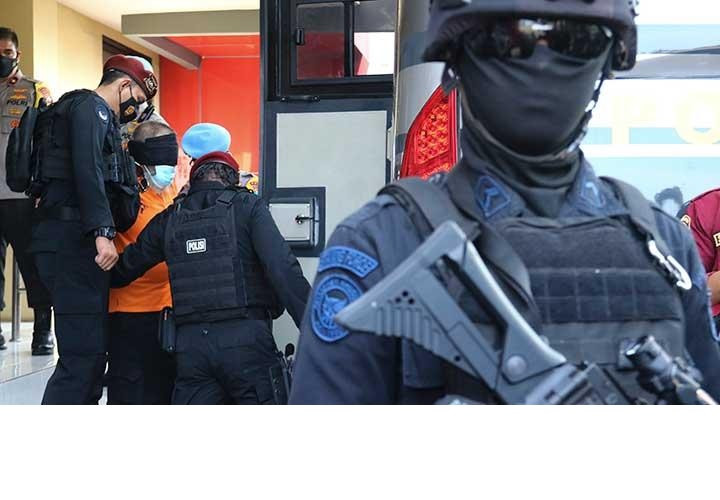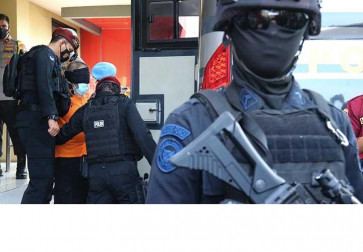Popular Reads
Top Results
Can't find what you're looking for?
View all search resultsPopular Reads
Top Results
Can't find what you're looking for?
View all search resultsJI’s new strategy: How to rationalize radicalism in Indonesia
The criticism from several Muslim communities against actions taken by the National Police Special Detachment 88 (Densus 88) to dismantle JI’s networks have highlighted that JI’s political strategy appears to be effective
Change text size
Gift Premium Articles
to Anyone
T
he recent and continuous arrests of alleged Jamaah Islamiyah (JI) members highlight how the terrorist group, which had been deemed weakened for years, remains a threat in Indonesia.
The arrest of JI leader, Para Wijayanto, back in 2018, has helped Indonesia’s counterterrorism and law enforcement understand how JI has changed its strategy in order to spread its radical ideology and to gather more support from common Muslim communities.
Authorities, during interrogations, discovered the in-depth structure of the group, which has led to mass arrests. Interestingly, JI under Wijayanto’s leadership has always shared its strong belief that, to survive, the group needed to focus on the long-term impact of its ideology and main agenda, the establishment of a sharia-based state in Indonesia.
In order to achieve this, Wijayanto has fully reviewed the group’s posturing. He decided to review what could be considered JI’s general guidelines for group members, with a particular focus on a tamkin (consolidation) strategy, the main purpose of which is to establish an Islamic government to oppose Indonesia's current democratic system that separates state from religion.
According to Wijayanto’s statement during his indictment in February 2020, tamkin relies on a major shift in the Muslim community, from the phase of Istidh’af (the belief that Muslims in the country are weak) where there is limited dakwah (propagation of Islam) and the community faces threats of imprisonment or being killed, to marhalah tamkin (the phase of consolidation) where Muslims no longer face obstacles and are able to fully implement the Daulah Islamiyah (Islamic state).
The main objective of JI was to develop the group’s political influence countrywide, to achieve what could be considered the rationalization of JI’s ideology. According to Wijayanto, to achieve this, Indonesian Muslim communities needed to accept the group’s existence and ideology, and if possible, implement it as their daily norms and values.
Recent events have highlighted that JI’s political strategy appears to be effective if we look at the current response of some of Indonesia’s Muslim communities, which have criticized the actions taken by the National Police Special Detachment 88 (Densus 88) to dismantle JI’s networks. This was made vivid after the arrest of Farid Okbah, an alleged JI member, last week, with some Muslim communities showing strong opposition to the government’s counterterrorism strategy.



















